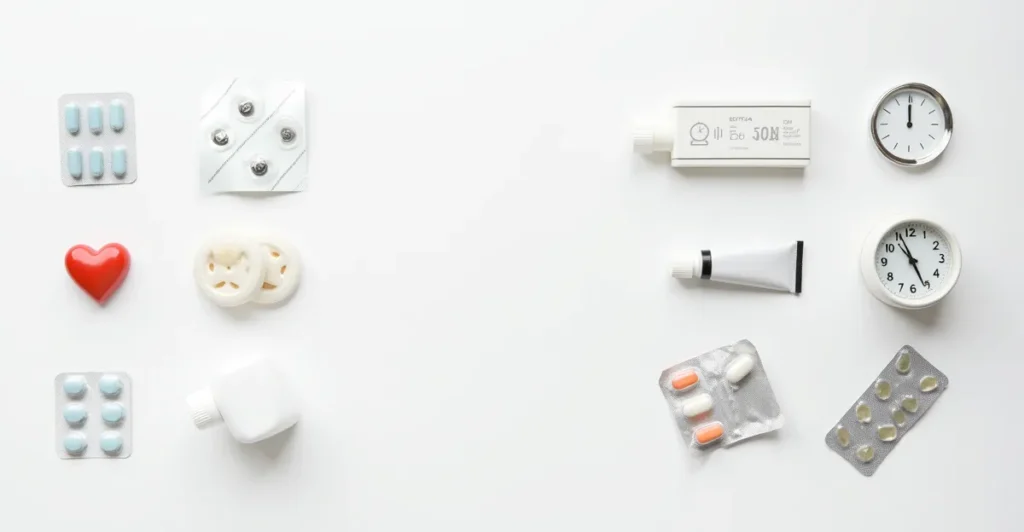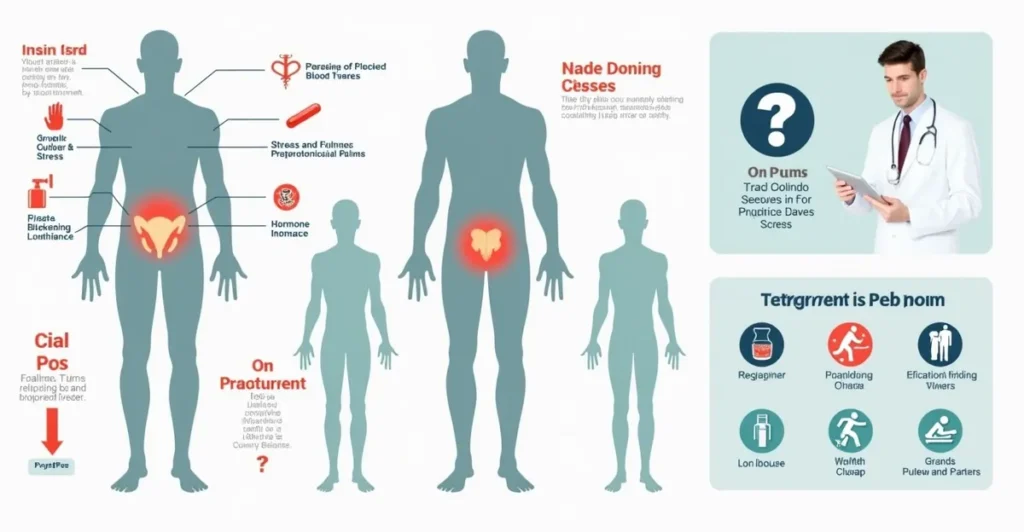
Introduction
Millions of men around the world suffer from erectile dysfunction (ED). It is defined as the inability to attain, or maintain, an erection adequate for the completion of satisfactory sexual performance. Talking openly about ED can be tough because it’s quite a sensitive subject, but knowing what ED is is important for both people who have it and their partners. The following is a thorough review of erectile dysfunction including its causes, symptoms, and treatment options.
What is Erectile Dysfunction?
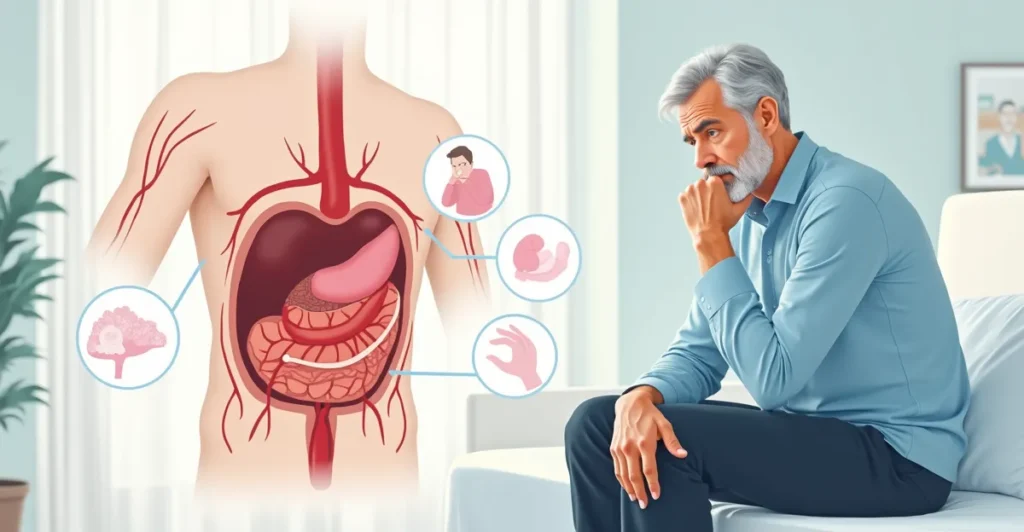
Impotence (ED)Impotence is the inability to attain or maintain an erection of the penis that is firm enough for sexual intercourse. Occasional problems with erections are also generally not a cause for concern. But if it a chronic problem, it may be an indication of an underlying health problem that needs to be addressed medically.
The Erections Physiology
So, before we can understand erectile dysfunction, we might need to know a little bit more about how erections happen.
- Sexual arousal releases neurotransmitters in the brain.
- These chemicals make the penis muscles relax.
- This relaxation permits more blood to flow into the penis.
- The blood fills two chambers in the penis, known as the corpora cavernosa.
- This causes the penis to harden and become erect.
When there is an interruption anywhere in this process, it can result in erectile dysfunction.
Aetiology of Erectile Dysfunction
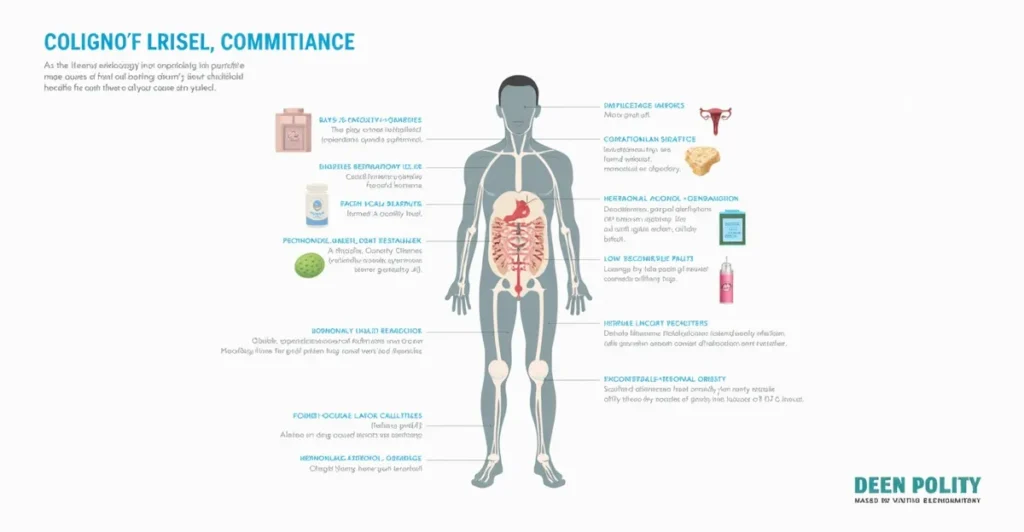
Impotence can be due to both physical and psychological causes. The awareness of these causes is important for the diagnosis and treatment.
Physical Causes
- Cardiovascular diseases
- Diabetes
- High blood pressure
- High cholesterol
- Obesity
- Metabolic syndrome
- Parkinson’s disease
- Multiple sclerosis
- Some medications require a prescription
- Tobacco use
- Peyronie’s disease
*Drug and alcohol abuse include: - Sleep disorders
- Medications for prostate cancer or BPH
- Surgeries or injuries that involve the pelvis or spinal cord
Psychological Causes
- Stress
- Anxiety
- Depression
- Relationship problems
- Poor self-esteem
- Guilt
- Fear of sexual failure
It’s also worth mentioning that there’s often a mix of the physical and psychological at play. For example, a trivial physical issue that delays sexual response can be enough to make a man anxious about getting an erection, and that anxiety can cause serious erectile dysfunction.
Signs Of Ed
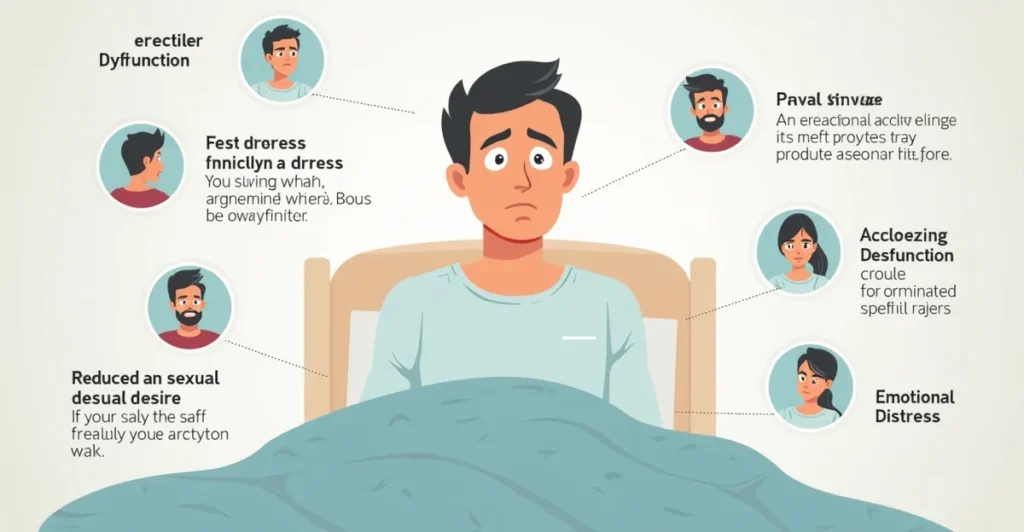
Erectile dysfunction presents with these symptoms:
- Trouble getting an erection
- Problems in obtaining or maintaining an erection during sex
- Diminished interest in having sex
If they last for a long time, typically weeks or months, see a provider.
Diagnosis of the erectile dysfunction
If you have signs of erectile dysfunction, you need to keep your health care provider informed. What you can do Here’s some information to help you get ready for your appointment, and what to expect from your doctor.
- Conduct a physical exam
- Obtain an extensive medical history
- Question about what symptoms you have and how long they’ve been present
- Ask about lifestyle and stress level
- Conduct blood tests to look for the cause
- Raymond Cross AASHO Designation: T 53-93 5 Program Director: Certified Material Testing Products Recommended Substitutes of the Nocturnal Penile Tumescence Test 2)Can suggest specialized test (NPT test or ultrasound) 3) Manual manipulation of ring (possible ED) Penile cancer (squamous cell carcinoma of Penis etc.) Does not apply Does not apply Most people would not recognize the ATF reference or another similar code or would not be able to locate it or appropriate paragraphs therein.
Erectile Dysfunction Treatment Options
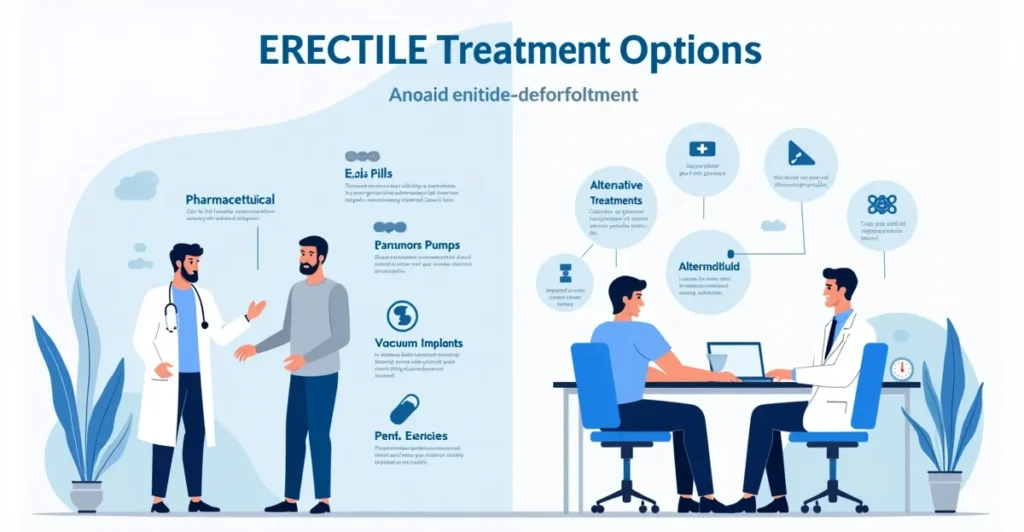
The treatment of an erectile dysfunction depends on its cause. Your doctor will help you decide which treatment plan should be used.
Lifestyle Changes
The initial treatment may involve making lifestyle changes:
- Making dietary and exercise changes
- Quitting smoking
- Cutting down on booze
- Managing stress
- Getting adequate sleep
These shifts can radically improve general health and may help to reduce erectile dysfunction.
Medications
Several options are offered for the treatment of erectile dysfunction (ED) by mouth:
- Sildenafil (Viagra)
- Tadalafil (Cialis)
- Vardenafil (Levitra)
- Avanafil (Stendra)
These drugs act by increasing the effects of nitric oxide, a natural chemical in the body that relaxes muscles in the penis, and allowing more blood to flow to the penis.
Keep in mind, that these medications need to be prescribed, can have side effects, and should be avoided if you are pregnant. It is important to speak to a doctor before beginning a new drug.
Other Treatments
Other treatments If oral medications or lifestyle changes do not work, treatment options may include:
- Penile injections
- Urethral suppositories
- Vacuum erection devices
- Penile implants
- Extracorporeal low intensity shock wave therapy
Psychological Counseling
Counseling or cognitive-behavioral therapy can help if impotence is due to psychological factors. These treatments can help to treat underlying causes like anxiety, depression or relationship problems.
Coping with Erectile Dysfunction

Dealing with erectile dysfunction may be tough, but don’t forget, you’re not alone. These are some of the strategies that can help:
- Be honest with your partner about your condition and emotions.
- Discover other ways of making love without penetration.
- Keep in shape and take care of yourself.
- Consider enrolling in a support group or seeing a counsellor if you’re suffering any emotional or psychological effects.
- Take it easy on yourself and your recovery and treatment journey.
When to See a Doctor
If you can’t get an erection and it’s bothering you, you should visit a doctor. “The more that the issue can be unpacked, with a partner ideally you trust, the better you will both understand where it’s coming from, and the easier it is for them to help guide you through it,” Aaron says. “It’s hard to speak on something like erectile dysfunction because it is so personal and often rooted in what you feel is failure, but it simply has to become a bit of a quick-fix problem.” “Trust your heart, not your head,” Aaron adds.
Call your doctor at once if you have:
- Diabetes or heart disease as well as symptoms of erectile dysfunction
- accompanying signs and symptoms of erectile dysfunction including backache, chest pain, shortness of breath
Conclusion

Erectile dysfunction is one of the most prevailing health issues that may have an unequal distribution effect on man’s quality of life and interpersonal relationship. But when well explained and treated, ED is a manageable condition. And remember, erectile dysfunction is not just a sex issue, it’s often a sign of other health problems. For that reason, we’d do well to get beyond it, and quickly and thoroughly.
If you have symptoms of ED, don’t be afraid to talk to your healthcare provider. By taking the right approach, you can start to make changes that can potentially lead to a healthier and more satisfying sex life. Remember, asking for help is a sign of strength, not weakness, and taking that step can result in better outcomes in health and a better quality of life.
Contact Us if you have any questions or concerns

